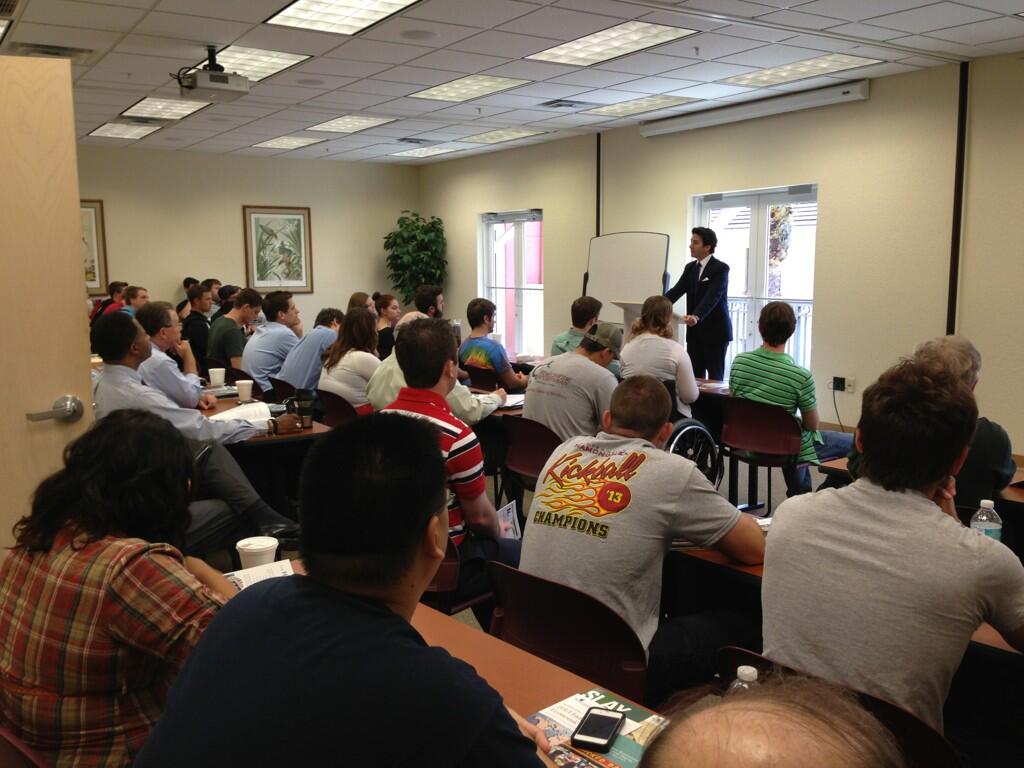Those of us at Southeastern University had a wonderful opportunity yesterday to hear from Mr. David Azerrad, Associate Director of the B. Kenneth Simon Center for Principles and Politics, a research arm of Washington, D.C.’s Heritage Foundation, one of the key public policy think tanks in the nation. Mr. Azerrad spoke on the topic “Defending the Dream: Why Income Inequality Doesn’t Threaten Opportunity.”
It was an excellent presentation of the contrasting concepts of the American Dream as seen from both the Left and the Right of the political spectrum. Azerrad spoke eloquently on economic freedom and the culture of work that is a necessary complement to that freedom. He showed how the liberal worldview stresses statism and egalitarianism over liberty. He did so in a scholarly, civil manner that pointed out some of the foibles of the conservatives as well as the liberals. He particularly noted that conservatives sometimes promote business rather than economic freedom—the two are not necessarily identical. Capitalism, he said, is a word so loaded with misconceptions now that it is better to avoid the term and emphasize instead free enterprise. The reason capitalism has gotten a bad reputation is because big business has too often joined hands with statism to protect itself and stifle free enterprise. This is known as crony capitalism.
Azerrad is optimistic about America’s future because he still senses we have more of a culture of work than many other countries. We are not Greece or France. Individuals in America do not get nine weeks’ vacation in their entry-level jobs. So he sees hope. I “hope” he’s correct, but I admit to being more skeptical about it; the entitlement mentality, coupled with the destruction of the family, offers a bleaker picture to me. But I welcome his analysis. It was also good to spend more time talking with him at lunch and afterwards as we walked on campus.
I was especially pleased with the turnout for this event. The room was packed, and we had to find extra chairs to accommodate the overflow. Further, the audience was attentive and and seemed to appreciate his message and the manner in which he delivered it—just right for the type of audience he was addressing, relaxed and informal, yet direct and substantive.
We need more such days at SEU, where sharp public policy dialogue can be offered to the students.

